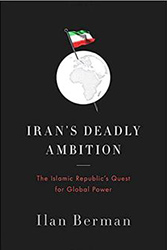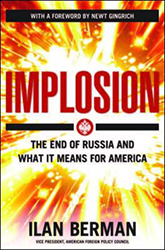 |
|
 |
| biography | articles | blog | media coverage | spoken | books | mailing list |
Latest Articles
Hasbara Doesn't Work: Israel Needs A New Form Of Messaging
April 24, 2024 • The Jerusalem Post
It's long been an accepted fact that Israel is terrible at hasbara (public diplomacy). For decades, the Jewish state has struggled to convey its point of view, and explain its actions, to largely hostile global publics. All too often the traditional ways it has tried to do so – speeches, interviews, and formal communiques – have failed to move the needle on world perceptions in a meaningful way. Even so, the six months since the horrible events of October 7 have been a wake-up call. It would be an understatement to say that Israel has been caught off guard by the explosion of global anti-Israel and antisemitic sentiment that followed Hamas's campaign of terror and the subsequent Gaza offensive. It has found itself unprepared for a global media environment where Hamas claims and statistics are treated uncritically, where Israeli communiques are scoffed at, and where foreign actors such as Russia and China help amplify disinformation that is intended to erode the Israeli position. Simply put, Israel now finds itself not only in a physical fight against Hamas (and, increasingly, Iran itself), but in an informational one as well. Against this backdrop, a qualitatively new approach to winning global "hearts and minds" is required.
The Iranian-Israeli Cold War Is Turning Hot
April 16, 2024 • The National Interest
Any serious observer of the Middle East knows that, long before Hamas' October 7 terror campaign and the resulting military offensive in the Gaza Strip, Israel was already embroiled in an undeclared war with another regional actor: the Islamic Republic of Iran. Jerusalem and Tehran have been waging a clandestine conflict throughout the region for decades. Over the years, that "shadow war" has entailed a great many things, fromcovert action to cyberattacks to targeted military strikes. But until now, it has been waged indirectly and largely away from the international spotlight. All that changed on April 13, when the Iranian regime launched a direct attack on the Jewish state from its soil for the first time. The massive offensive, involving 170 drones, 30 cruise missiles, and 120 ballistic missiles, was ostensibly a response to an Israeli airstrike on Damascus days earlier that killed a high-ranking Iranian general. But it also marked a major evolution in Iranian strategy—one with significant ramifications for the Middle East as a whole.
Israel Seeks A New Strategic Concept
April 11, 2024 • National Institute for Public Policy Information Series No. 583
On October 7, 2023, the Palestinian terrorist group Hamas carried out a brazen, large-scale attack on communities in the south of Israel. The offensive, dubbed "Al-Aqsa Flood," entailed the breaching of the border fence separating Israel from the Gaza Strip by hundreds of militants, and subsequent systematic assaults on population centers, social gatherings, and other soft targets. The results were horrific; Hamas' campaign of terror left more than 1,200 Israelis dead in the largest slaughter of Jews to take place since the Holocaust more than eight decades earlier. In response, Israel has launched a large-scale military offensive in the Gaza Strip – a protracted campaign that, six months later, is still ongoing. Its goals are two-fold, albeit potentially contradictory. The first is to remove Hamas from power in the Gaza Strip, degrade the group's strategic capabilities, and prevent it from ever presenting a threat to Israeli security ever again – an objective that, Israeli officials have made clear, will require the establishment of a new "security regime" in the enclave. The second is to secure the return of the 130-plus hostages that remain in Hamas captivity. In tandem with its military offensive against Hamas, however, Israel has experienced a deeper strategic shift. A sea change is now taking place in Israel's approach to security affairs, informed by the errors and miscalculations that made the atrocities of October 7th possible.
The True Obstacles To A Palestinian State
April 2, 2024 • Newsweek
There's a new joke making the rounds in Israel, concerning the Biden administration's Mideast policy. The punchline is that the White House is worried about a "two state solution"—just the wrong one. That is, rather than figuring out how to make real, lasting peace between Israel and "Palestine," Washington, D.C., is preoccupied with pacifying two other states: Michigan and Arizona. Like all such anecdotes, this one has a ring of truth to it. The Biden administration, facing an increasingly tough re-election battle this fall, is tacking left in its approach to Israel, hoping to mollify voters angered by its support of Israel's current war against Hamas in the Gaza Strip. In the process, President Joe Biden and his supporters have broken with Israel's government in all sorts of very public and concerning ways, from undercutting Israeli Prime Minister Benjamin Netanyahu by hosting his main political rival in Washington for an unsanctioned visit to calling for Netanyahu himself to step down. The White House has also, in a clear nod to calls from its activist left, begun weighing options for the near term recognition of Palestinian state. (Most recently, the two sides have engaged in a very public dust-up over America's failure to block a controversial U.N. Security Council resolution that calls for a ceasefire without mentioning Israeli hostages.) One the one hand, this is understandable. All politics is local, after all, and Team Biden needs to be responsive to its constituents if it hopes to win re-election in November. On the other, however, it is deeply myopic because it gives little serious thought to what it might actually take to build a viable "day after" solution for the Palestinian people.
The Limits Of Israeli-Saudi Rapprochement
April 1, 2024 • AFPC Insights
Is a political thaw between Jerusalem and Riyadh truly possible? Before the terror attacks of October 7th, the Kingdom of Saudi Arabia was widely hailed by many – including many in Israel – as the next likely entrant into the Abraham Accords, joining Bahrain, the United Arab Emirates and Morocco in normalizing relations with the Jewish state. Even now, amid Israel's ongoing war against Hamas in the Gaza Strip, many still believe that the nascent reconciliation could be easily and quickly revived. In his recent address at New York's Radio City Music Hall, President Biden himself said as much when he suggested that the House of Saud, and other Arab governments as well, "are prepared to fully recognize Israel" if the Israeli government makes greater accommodations for humanitarian assistance to the Palestinians, and paves the way to an eventual two-state solution. Others, however, are striking a more sober note. For instance, a new policy paper from the Institute for National Security Studies (INSS), Israel's premier think tank, suggests that – for all of the official optimism that surrounds it – Israeli-Saudi normalization could end up being a decidedly uphill battle.
Books by Ilan Berman




home | biography | articles | blog | media coverage | spoken | books | mailing list | mobile site